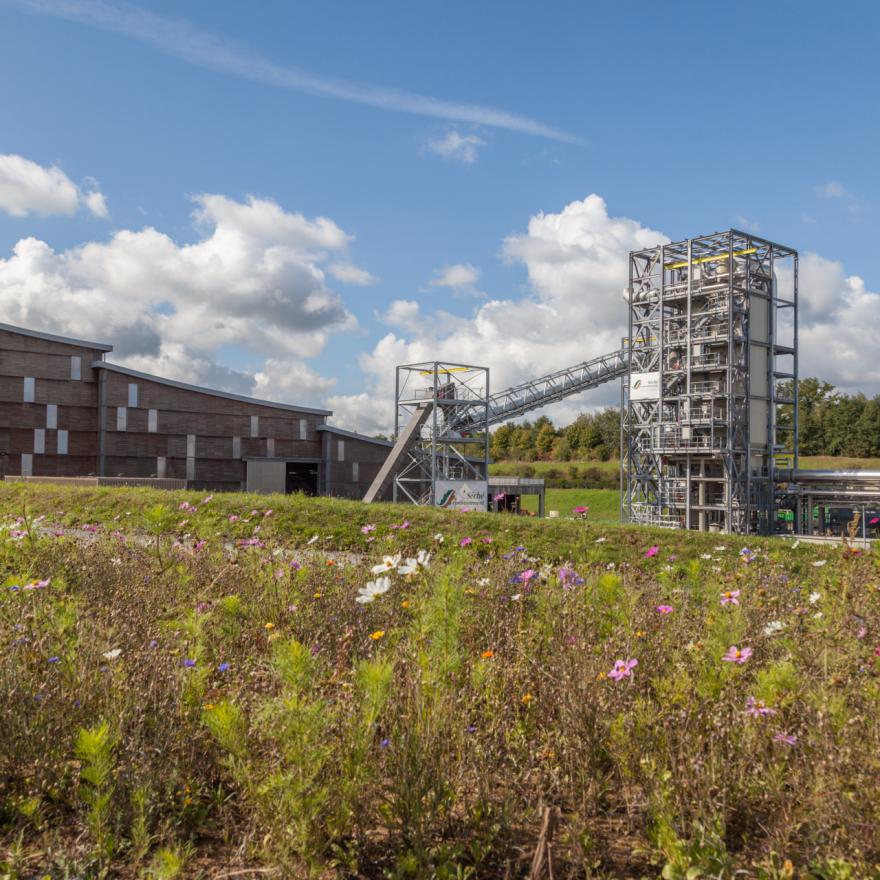Energy production
Discover
The Laval heating network
For the first time in France, a boiler dedicated to CSR (Combustibles Solides de Récupération) recovery is distributing waste heat in a conurbation. This energy production tool operates all year round and is a real example of energy complementarity. In fact:
- from March to November we supply the heat produced to the neighboring Desyhouest company for dehydrating fodder.
- in winter, the energy is available to supply the city of Laval’s urban heating network, serving numerous apartment buildings and public facilities.
Key figures
The CSR
Solid Recovered Fuels (SRF) are prepared from non-hazardous, non-recyclable waste, selected for its high energy potential. In line with the waste management hierarchy, these first follow the material recovery route, which aims to extract all materials from waste, wood, paper and certain plastics, in order to recycle them. The result is non-recyclable, final waste with high energy potential: solid recovered fuel (SRF). These are prepared from non-hazardous waste and must meet a quality objective before being used in combustion. The biogenic content of SRF is a low-carbon recovery energy (reducing greenhouse gas emissions) that contributes to the efforts needed to combat global warming.
The boiler furnace has a capacity of 3t/h of CSR. It is permanently maintained above 850 degrees. Depending on energy demand, CSR requirements can be adjusted from 55% to 100%. Combustion takes place in a fluidized sand bed. This circulating technology makes it possible to use fuels with a wide range of calorific values, while guaranteeing a homogeneous temperature in the furnace and an energy recovery efficiency of 90%.
The energy contained in the flue gases is transformed into steam in the boiler. Thanks to a heat exchanger, this steam then heats the water in the closed circuit intended to supply the Laval heating network.
The biogaz
The management of non-recyclable household waste in landfill facilities reproduces the biological phenomenon of methanization. The fraction of organic matter contained in the waste degrades naturally to produce biogas, a renewable energy source. This biogas, which contains methane, has been an energy resource since 1998, when an innovative industrial ecology solution was put in place: it was supplied to DESHYOUEST, an agricultural cooperative located next to the site, which was thus able to cover its energy needs.
In 2008, Séché Éco-Industries modified its installations to include a cogeneration unit comprising two turbines: the biogas has since been used to produce electricity, which is fed into the public ERDF grid. The residual heat from the turbine exhaust gases is recovered by a boiler. It is supplied in its entirety to DESHYOUEST.
Key figures
Hello,
We will do our best to answer you as soon as possible.
